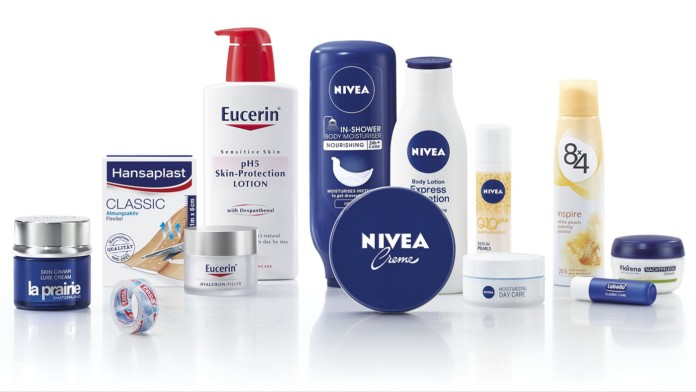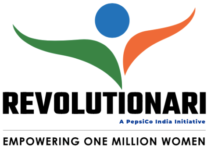Greenpeace East Asia report has ranked the world’s 30 biggest cosmetics and personal care companies on their commitment to tackling the issue of microbeads in their products. Microbeads are a type of microplastic that can be found in personal care products such as toothpastes, face washes, scrubs and shower gels. They are tiny plastic particles that are added for their exfoliating properties, but sometimes purely for esthetic purposes.
The world’s 30 largest personal care companies were surveyed and scored on their microbead commitment, on the basis of four main criteria, to enable customers to understand better which brands are protecting the oceans, and which are not. Here’s a list of top two joint winners:
The four main criteria:
- Commitment & information transparency: Does the company have commitment on microbeads?
Is it publicly available and easy to access? - Definition: How does the company define microbeads for their commitment?
- Deadline: When will the company meet their commitment?
- Application scope: Does the commitment cover all products in all markets?
The score for each company was based on their responses to a Greenpeace survey, as well as any publicly available information. Each criterion was weighted equally and scored out of 100, to give a final maximum score out of 400.
Joint first – score 340 out of 400
Beiersdorf is a German personal care company which owns brands such as Nivea, La Prairie and Eucer. Beiersdorf also uses other solid, insoluble plastic polymers (such as nylon/PA) in their leave-on products. This is an example of continued plastic use which falls outside of their narrow definition of microbeads. It is therefore a loophole in their commitment.
Colgate-Palmolive is a an American personal care, household and healthcare company. It owns brands such as Sanex, Palmolive and Colgate. In 2015 they were the world’s 4th largest personal care company.
It narrowly applies to microbeads used for a certain function – exfoliating and cleansing – rather than all functions. It applies only to certain rinse-off personal care products, rather than all products. It is unclear whether all plastic types are included within the definition
L Brands is an American fashion and personal care company. It owns brands such as Victoria’s Secret, PINK, Bath & Body Works and La Senza. In 2015 they were the world’s 6th largest personal care company.
L Brands’ commitment falls short of an acceptable standard because their definition is too narrow. It applies to just certain product types – soaps and scrubs – rather than all products. It applies to microbeads designed for a certain function – exfoliating or cleansing – rather than all functions. Is unclear whether it applies to all plastic types. L Brands should provide more transparency to its customers by making their microbead commitment publicly available on their website and sharing details about what alternatives to microbeads they are using in their products
Henkel AG & Co is a German based personal care, home care and adhesive technologies company which owns brands such as Persil and Schwarzkopf. In 2015 they were the world’s 11th largest personal care company.
Despite ranking well, Henkel’s microbead commitment falls short of an acceptable standard because it is too narrow or unclear: it only applies only to certain products – cosmetic products, some ‘rinse-off’ facial and body cleansing products – rather than all products. There is a lower size limit in their definition, rather than covering anything under 5mm in size. It is silent about whether microbead function is a limitation.
Joint Second – 320 out of 400
Clarins is a French skincare and cosmetics company. In 2015 they were the world’s 26th largest personal care company.
Unilever is a Netherlands based personal care, household products and food company. It owns brands such as Dove, Vaseline and VO5. In 2015 they were the world’s 3rd largest personal care company.
Botica Comercial Farmacêutica is a Brazilian based beauty and personal care company. In 2015 they were the world’s 20th largest personal care company.
Oriflame Cosmetics is a Swedish personal care and cosmetics company known for brands such as Nature’s Secret, Optimals and Love Nature. In 2015 they were the world’s 30th largest personal care company.
Shiseido is a Japanese personal care company. It owns brands such as Nars, Tsubaki and Bare Minerals. In 2015 they were the world’s 8th largest personal care company.
Avon is an American based personal care, cosmetics and household products company. In 2015 they were the world’s 9th largest personal care company.
Coty is an American based personal care and cosmetics company. It owns brands such as Adidas, Calvin Klein, Chloe and Marc Jacobs. In 2015 they were the world’s 10th largest personal care company.
Kao Corp is a Japanese personal care, cleaning products and chemical company. It owns brands such as Biore, John Frieda and Curél. In 2015 they were the world’s 12th largest personal care company.
http://www.greenpeace.org.uk/document/microbead-commitment-ranking-global-cosmetics-and-personal-care-companies










